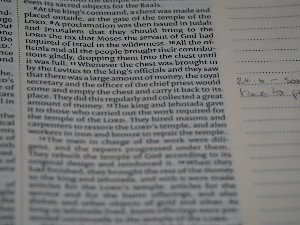Hartutik Hartutik, Dewi Ratna Jay, Matilda Stella Pradnya, Irene Nindita Pradnya, YL Sukestiyarno
IoT - AI Mentoring and Diffusion in the Development of Digital-Based Teaching Devices for PAK Teachers
Introduction
Iot - ai mentoring and diffusion in the development of digital-based teaching devices for pak teachers. Empower PAK teachers in Semarang to create digital teaching devices with IoT & AI. Improve Catholic religious education quality through tech integration & mentoring.
Abstract
Education teacher religion Catholic (PAK) becomes part in system education in Indonesia which follow play a role important in improvement quality education . Improvement self with adapt technology in this 5.0 era become matter important . At this time Still There is difficulty PAK teachers in Semarang City in adapt progress technology especially the Internet of Things (IoT) and Artificial Intelligence (AI). Purpose devotion public This For spread knowledge ( diffusion ) and skills in leveraging IoT and AI in to design device teach education religion Catholic . Activities devotion public This implemented in School St. Francis Catechetical Pastoral College ( STPKat ) Semarang Assisi with amount participants 22 PAK teachers consists of from Elementary, Middle, and High School/Vocational High School teachers in Semarang City. Methods Which applied in devotion is method lecture , with material base law And document church Which support use Internet For kindness His creation , method discussion And ask answer done with method give example And step search application compile device teach PAK with method practice direct search And making in a way independent . Evaluation activity done with give questionnaire pretest -posttest through application Kahoot . Results activity This show existence improvement understanding , knowledge , and skills before And after given diffusion And mentoring utilization of IoT and AI in compile device teach education religion Catholic by 29.31 points .
Review
This paper addresses a highly relevant and timely topic: the integration of advanced technologies like the Internet of Things (IoT) and Artificial Intelligence (AI) into the pedagogical practices of Catholic religious education (PAK) teachers in the digital 5.0 era. The authors clearly identify a critical gap in digital literacy among PAK educators in Semarang City and propose a public service intervention focused on knowledge diffusion and skill development. The primary objective is to empower these teachers to design digital-based teaching devices using IoT and AI, which is a crucial step towards enhancing the quality of religious education and aligning it with contemporary technological advancements. A significant strength of this work lies in its practical, direct approach to a specific, often underserved, educational demographic. The methodology, encompassing lectures, discussions, practical exercises, and independent device creation, is well-suited for skill transfer. It commendably blends theoretical grounding, including referencing supportive church documents, with hands-on application. The intervention's success is quantitatively demonstrated through a pretest-posttest evaluation via Kahoot, showing a substantial 29.31-point improvement in the participants' understanding, knowledge, and skills. This tangible result provides compelling evidence for the efficacy of the mentoring and diffusion activities implemented by the research team. While the abstract effectively highlights the positive outcomes, it leaves room for further detail that would enrich a full paper. Specifically, elaborating on the nature of the "digital-based teaching devices" created by the teachers and the *specific* ways IoT and AI were integrated into these devices would provide valuable insights into the practical application. Future work could also benefit from exploring the long-term impact of this training on actual classroom practices and student engagement, beyond the immediate post-intervention assessment. Nonetheless, this initiative serves as an excellent model for targeted teacher professional development, addressing the pressing need for technological adaptation in specialized educational fields, and its findings underscore the potential for similar programs to empower educators across diverse contexts.
Full Text
You need to be logged in to view the full text and Download file of this article - IoT - AI Mentoring and Diffusion in the Development of Digital-Based Teaching Devices for PAK Teachers from Jurnal Abdimas .
Login to View Full Text And DownloadComments
You need to be logged in to post a comment.
Top Blogs by Rating
Bending Light, Shaping Reality...
By Sciaria
Genetic Dark Matter: The Unsee...
By Sciaria
Your Digital Shadow: What Stat...
By Sciaria
Favorite Blog
The Unseen Pillars: How Crypto...
By Sciaria
Beyond the Stereotype: Unpacki...
By Sciaria
Your Digital Shadow: What Stat...
By Sciaria




